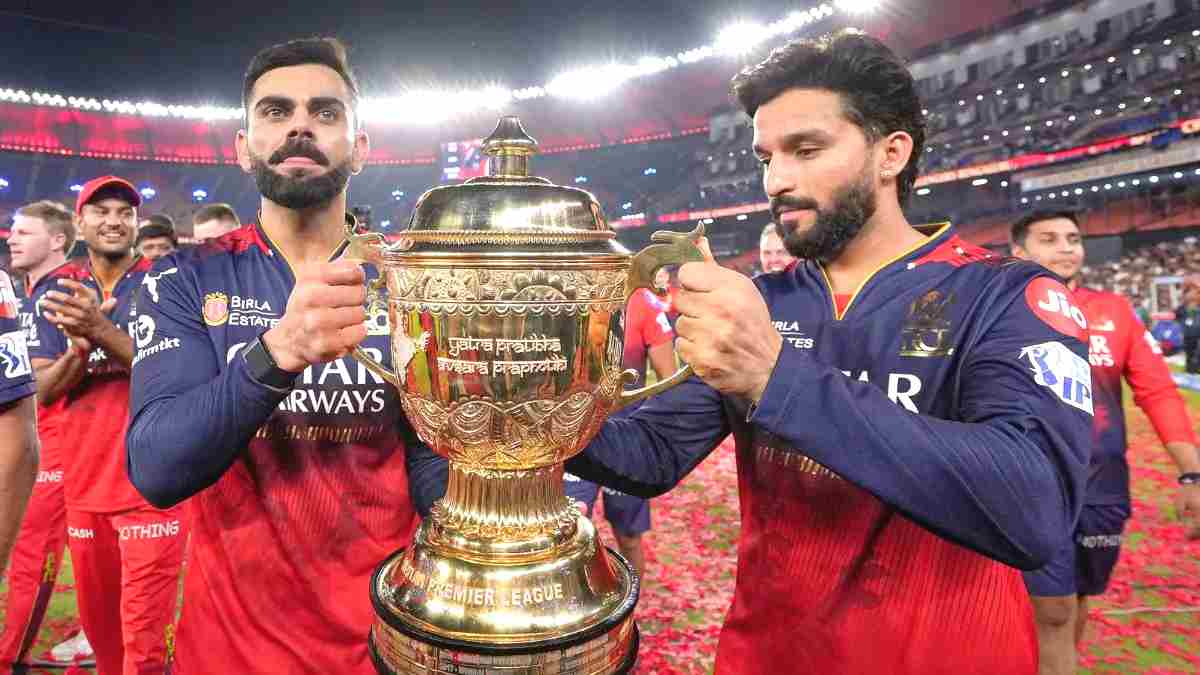Diageo’s India arm is conducting a “strategic review” of its investment in Royal Challengers Bengaluru, signalling possible exit by March 2026.

Diageo, the global alcoholic beverages leader, has formally begun a “strategic review” of its investment in the Indian Premier League (IPL) franchise Royal Challengers Bengaluru (RCB), communicating this intention to the Securities and Exchange Board of India (SEBI) and setting the stage for a possible sale of stakes in one of the league’s most high-profile teams.
Once done, this will mark an end to an era in which RCB, a brand synonymous with star power and massive fandom, operated under the broader umbrella of United Spirits Ltd (USL), a Diageo company.
What is Diageo and its link to RCB?
Diageo is a British multinational beverage company. In India, its major presence is via United Spirits Ltd (USL).
RCB’s ownership structure has multiple layers: RCB is operated by Royal Challengers Sports Private Limited (RCSPL), which is a wholly owned subsidiary of United Spirits Ltd, in turn controlled by Diageo. Thus, while USL directly manages RCB, the global control and strategic decisions come from Diageo’s headquarters.
Historically, RCB was acquired by business magnate Vijay Mallya in 2008 at the inception of the IPL, with the team’s initial price at USD 111.6 million, making it the second-highest bid in the first IPL auction.
Following Mallya’s financial and legal troubles, Diageo, already acquiring stakes in United Spirits, assumed full control over USL and with it, the ownership of RCB by 2016.
Read More: What this title win means for Virat Kohli; Final missing piece in his cabinet?
All about the strategic review
Diageo’s communication to SEBI is framed as a “strategic review” of its stake in RCB. The process is anticipated to conclude by March 31, 2026, aligning with India’s financial year.
According to Praveen Someshwar, Managing Director & CEO of USL, while RCB has been a valuable strategic asset, it remains “non-core” to the company’s alcoholic beverage business objectives. The review, therefore, signals Diageo’s intent to realign its portfolio, focusing more sharply on its key strengths in beverages and divesting from ventures that fall outside this scope.
RCB Valuations
When RCB was first acquired in 2008, the franchise was priced at USD 111.6 million by Vijay Mallya’s UB Group. Today, nearly 18 years later, the valuation sought by Diageo is reportedly a staggering USD 2 billion (roughly Rs 17,762 crore). If the sale goes through at this value, it would mark one of the largest sporting franchise transactions globally.
Investment bank Citi has been appointed as the transaction advisor for this high-profile sale, and leading Indian business groups, including Adar Poonawalla and the Adani Group, are rumoured to be interested in bidding. The valuation itself is also expected to have ripple effects, influencing the perceived market value of other IPL franchises.
Read More: IPL 2025, Final, RCB vs PBKS: Bengaluru break the IPL code in 18th attempt, emerge as champions
Why is Diageo looking to exit RCB?
There are both overtly stated business reasons and more nuanced undercurrents behind the decision. Officially, Diageo has cited that sports franchise ownership is “non-core” to its alcohol and beverages business. The company, already facing challenges in its global core business, aims to streamline its portfolio and focus on its strategic, revenue-generating sectors.
However, there are multiple underlying factors as well. United Spirits is fundamentally an alcohol-selling company. In India, regulations around alcohol branding in sports are complex, often forcing companies to adopt surrogate advertising or maintain a delicate balancing act to protect brand reputations in family-oriented entertainment like cricket.
Also,the tragic stampede that occurred during RCB’s victory parade outside the M Chinnaswamy Stadium in Bengaluru in 2025 is also being seen as one of the possible reasons. This disaster triggered widespread criticism over safety arrangements, event management, and the company’s crisis response.
Such incidents carry significant reputational risks, especially for a consumer brand. The negative publicity, given the magnitude of the incident and the team’s close association with United Spirits and Diageo, could diminish returns from the association and erode brand value.
In international business,Diageo and USL have been under pressure to improve capitalisation, reduce non-essential investments, and adapt to evolving business norms. As part of a broader strategic review, non-core assets like sports franchises become logical divestment candidates.
Market timing is also a very key aspect to notice here.RCB, after years of waiting, finally secured its first IPL trophy in 2025. The timing, therefore, provides a prime opportunity to sell the asset at a market value high, immediately after the franchise’s most significant achievement.
It is important to add that the sale process is likely to stretch beyond the 2026 season and will thus not impact RCB’s planning for the impending WPL & IPL seasons.
Read More: Which is the second-best cricket league after IPL

